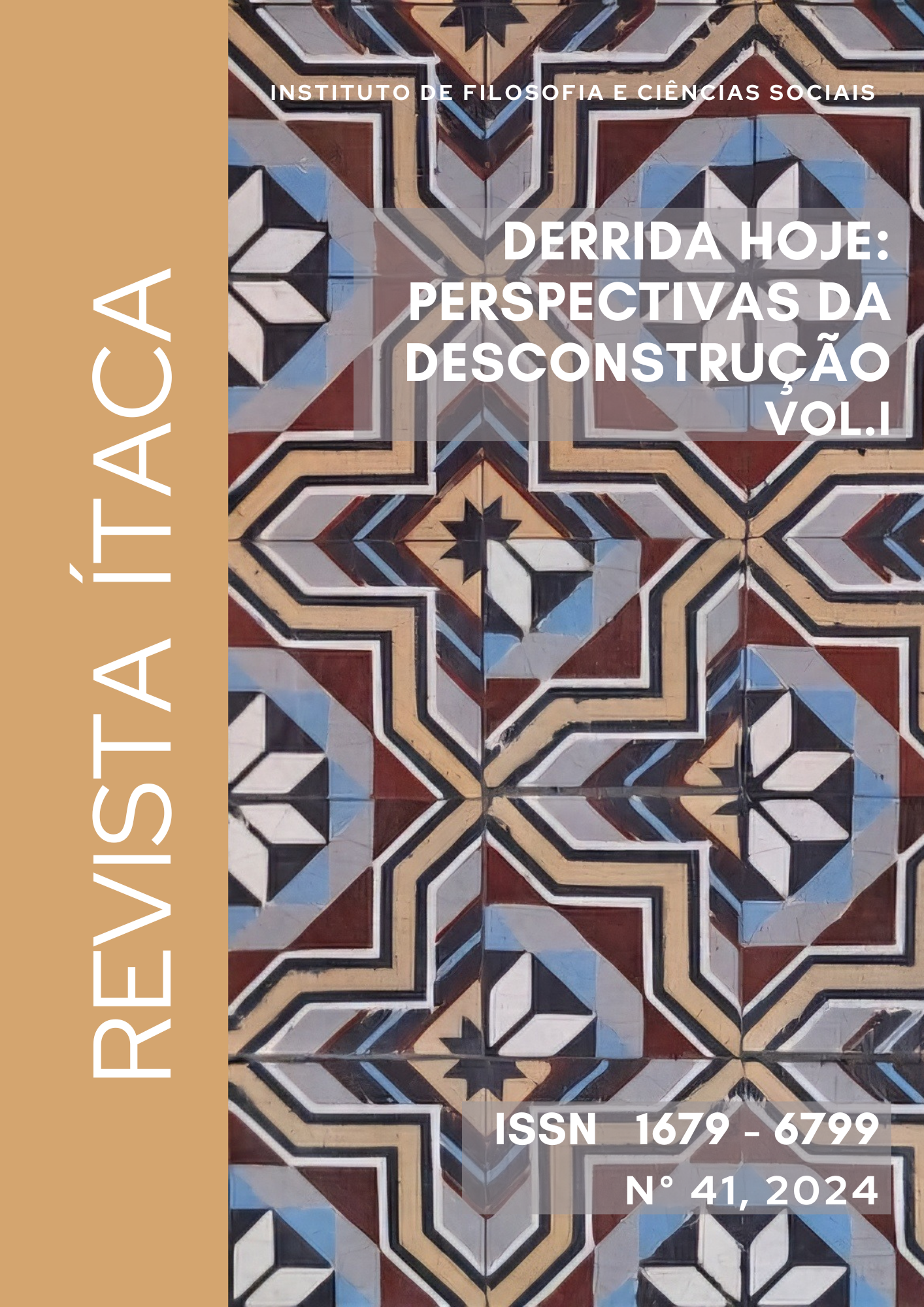UNCONDITIONAL HOSPITALITY AND RAPE BY REALITY AS MODELS FOR PHILOSOPHY
Abstract
I propose here a new interpretation of the “unconditional hospitality” developed by Derrida in volume 1 of his Seminar On Hospitality (Paris: Le Seuil, 2021). The tension that Derrida introduces into the very heart of the notion of hospitality (through the numerous aporias and antinomies he identifies in it, and through his insistent recourse to violent, even unbearable texts, such as the history of the “Daughters of Lot”) is seen here as a symptom of a much more general problem. I try to show that Derrida’s exalted defense of an “unconditional hospitality” that no one (including himself) has ever experienced is an unconscious way of revealing a temptation towards “realism” that his entire philosophy combats, but which nevertheless exerts a strong attraction on him, as it does on every philosopher. The history of philosophy, from Plato to Derrida via Descartes or Spinoza, has most often made “hospitality to reality” the very definition of philosophy. For millennia, truth and wisdom have been conceived as the acceptance of the violence inflicted on us by the “reality” that penetrates us without our invitation or consent, until it damages us and finally drives us out of existence. Our reading of Derrida’s ‘unconditional hospitality’ thus leads us to perceive an unexpected violent dimension in “realism”, one of philosophy’s main models.
Downloads
Published
Issue
Section
License
Copyright (c) 2024 Charles Ramond

This work is licensed under a Creative Commons Attribution-NonCommercial-ShareAlike 4.0 International License.
Os autores, ao enviar textos para possível publicação, concordam com os seguintes termos:
1. Os autores mantêm os direitos autorais e concedem à revista o direito de primeira publicação.
2. A publicação é licenciada sob a Creative Commons Atribuição - Não Comercial - Compartilha Igual 4.0 Internacional (CC BY-NC-SA 4.0).
3. O autor está autorizado a publicar o trabalho em outras revistas ou como capítulo de livro, desde que a distribuição não seja exclusiva e indique a primeira publicação nesta revista.
4. O autor é incentivado a divulgar e disponibilizar o trabalho aprovado para publicação nesta revista em quaisquer meios, desde que essa versão divulgada seja a mesma enviada para avaliação e, posteriormente, seja alterada pela versão publicada.


